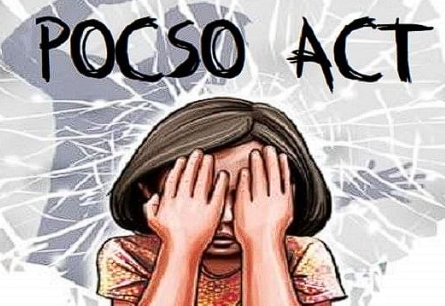Section 19 of POCSO Act
On April 24, 2025, the Supreme Court of India agreed to hear concerns regarding Section 19 of the Protection of Children from Sexual Offences (POCSO) Act. Senior advocate Indira Jaising raised issues about the mandatory reporting of sexual activity among juveniles. This requirement is seen as a potential threat to the health and wellbeing of adolescent girls.
About the POCSO Act
- The Protection of Children from Sexual Offences Act was enacted to protect minors from sexual abuse.
- The POCSO Act came into effect on 14th November 2012
- Why it was made:
- India signed the UN Convention on the Rights of the Child in 1992.
- Its purpose is to properly define and punish sexual crimes against children, which were earlier unclear or weakly penalized in Indian law.
- Who is a child: Anyone below 18 years.
- Punishment: Based on how serious the offence is.
- 2019 Amendment:
- Made punishments more strict.
- Introduced death penalty for some cases.
Key Features
- Gender-Neutral Law: Protects both boys and girls from sexual abuse.
- Encourages Reporting: Individuals and institutions must report cases. Not reporting such cases is now a punishable offence.
- Clear Definitions:
- Terms like ‘sexual assault’ clearly defined with proper punishments.
- Child pornography (storing or keeping) is now a specific offence.
- More precise than vague terms like “outraging modesty” used in older laws.
POCSO Rules 2020
It was introduced to support the main law and help in better implementation.
Key Features
- Interim Compensation: Special Court can order temporary money for child’s care after FIR. This amount is later adjusted with the final compensation.
- Immediate Special Relief: Child Welfare Committee (CWC) can suggest urgent help (food, clothes, travel, etc.). Funds are given by bodies like DLSA, DCPU, or under the Juvenile Justice Act. Money must be given within one week of request.
- Support Person for the Child: CWC assigns a support person to help the child during police and court proceedings. They take care of the child’s health, emotions, and education. They also update the child and parents about the case progress.
Section 19
Section 19 mandates that anyone who suspects or knows of an offence must report it to the police. This includes children themselves. Reports must be documented and recorded in a manner that is comprehensible to the child involved. The law aims to ensure that children receive immediate care and protection when needed.
Concerns Raised by Advocates
Advocates argue that the current interpretation of Section 19 can lead to the criminalisation of young people. The law does not differentiate between consensual and non-consensual acts. This creates a fear of legal repercussions for adolescents engaging in voluntary relationships, potentially discouraging them from seeking medical help.
Impacts on Health and Wellbeing
The mandatory reporting requirement may lead to negative health outcomes. Adolescents may avoid seeking medical assistance for fear of legal consequences. This could push them towards unregulated medical practitioners, posing further health risks. Jaising emphasised the need for counselling rather than criminalisation in such cases.
Legislative Intent and Future Considerations
The legislature intended Section 19 to ensure timely intervention and protection for children. However, the application of this law raises questions about the balance between safeguarding minors and respecting their autonomy. The Supreme Court’s upcoming hearing aims to explore these complexities.
Role of Medical Professionals
Medical professionals face legal obligations under POCSO. They must report any knowledge of sexual activity among minors, regardless of consent. This places them in a challenging position, as their primary duty is to care for the patient. The fear of legal consequences may deter young individuals from seeking necessary medical care.
The Need for Reforms
The current legal framework may require reassessment. Advocates suggest reforms that prioritise education and counselling for adolescents over punitive measures. The goal is to create an environment where young people can discuss their issues openly without the fear of criminalisation.
Month: Current Affairs - April, 2025
Category: GS-II-Constitution of India & Polity, GS-II-Social Justice, GS-II-Governance



